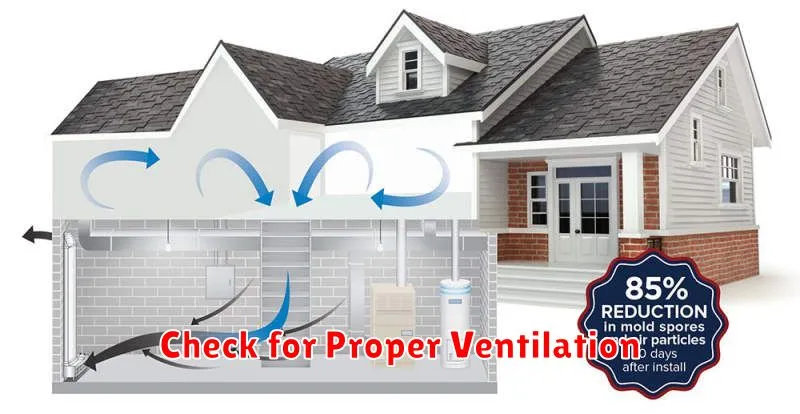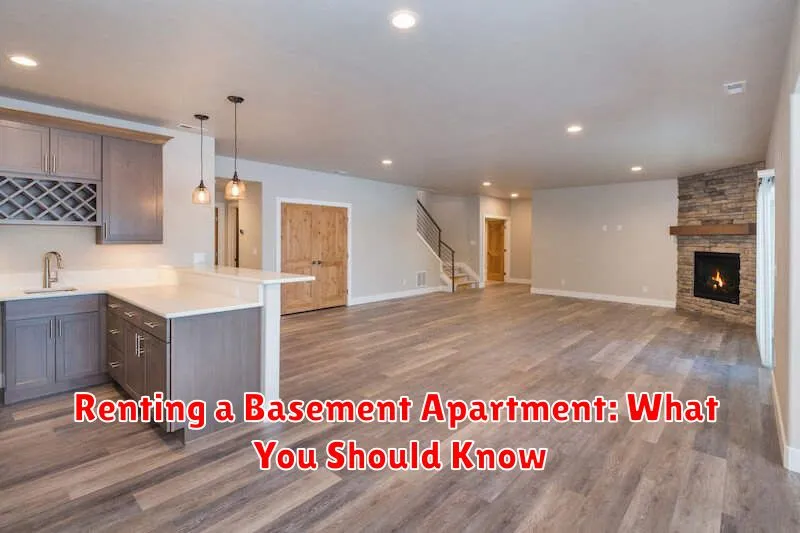Considering renting a basement apartment? Renting a basement apartment can be an appealing option, often offering more affordable rent compared to other housing options. Whether you are a first-time renter, a student looking for off-campus housing, or someone seeking a more budget-friendly living situation, a basement apartment may be a suitable choice. However, there are several crucial factors to consider before signing a lease agreement for a basement apartment rental. This article will guide you through the essential aspects of renting a basement apartment so that you can make a well-informed decision. From understanding legal requirements to assessing safety and security, we’ll cover everything you need to know.
Basement apartment rentals come with unique considerations that differ from other rental types. Understanding your rights as a tenant and the landlord’s responsibilities is crucial. This guide will explore key topics, including lease agreements, security deposits, utilities (such as hydro, water, and heat), privacy concerns, and potential issues related to dampness, ventilation, and natural light. By being aware of these factors before you start your apartment search, you can ensure a positive renting experience in your chosen basement apartment.
Benefits of Basement Units
Renting a basement apartment can offer several advantages, especially for budget-conscious renters. Lower rental costs are a primary draw, as these units are typically less expensive than above-ground apartments.
Increased privacy is another benefit. Basement units often have separate entrances, providing a greater sense of independence from the main house. This can be particularly appealing to those seeking solitude.
Utility cost savings can also be a factor. Due to their location partially underground, basement apartments tend to stay cooler in the summer and warmer in the winter, potentially reducing heating and cooling expenses.
Common Drawbacks to Consider
While basement apartments offer advantages, it’s crucial to be aware of potential downsides. Limited natural light is a common issue, potentially impacting mood and increasing reliance on artificial lighting. Dampness and humidity can also be a concern, potentially leading to mold growth and musty odors. Proper ventilation is essential.
Privacy can be another factor. Shared entrances and thin walls might mean less soundproofing and reduced personal space. Additionally, limited storage space is often a characteristic of basement apartments, requiring careful organization and potentially necessitating off-site storage solutions.
Safety should also be a key consideration. Ensure the apartment has properly functioning smoke detectors, carbon monoxide detectors, and adequate egress windows in case of emergencies. Finally, cell phone reception can sometimes be weaker in basements, depending on the location and building construction.
Check for Proper Ventilation

Proper ventilation is crucial in a basement apartment for maintaining healthy air quality and preventing moisture-related problems. A lack of adequate ventilation can lead to mold growth, musty odors, and potential health issues.
When inspecting a prospective basement apartment, pay close attention to signs of proper ventilation. Look for vents and windows that can be opened. Inquire about the presence of an exhaust fan, particularly in the bathroom and kitchen areas. These are essential for removing excess moisture and odors.
Ask the landlord about the ventilation system. Is it regularly maintained? How often are filters changed (if applicable)? A responsible landlord will understand the importance of ventilation and be able to answer these questions clearly.
If the basement apartment feels stuffy, damp, or has a persistent musty odor, it could indicate a ventilation problem. This is a serious concern that should be addressed before considering renting the unit.
Inspect for Moisture and Pests
Moisture is a common issue in basement apartments. Carefully inspect for signs of dampness, water stains, or musty odors. These could indicate potential problems like leaks, inadequate ventilation, or flooding. High humidity can lead to mold and mildew growth, which poses health risks. Check walls, ceilings, floors, and around windows for any signs of water damage.
Pests are another concern. Basements can be attractive to insects and rodents. Look for signs of infestation, such as droppings, nests, or insect activity. Inquire about pest control measures the landlord has in place. A clean and well-maintained basement is less likely to attract pests, but regular inspections are still crucial.
Ensure Legal Compliance
Adhering to all applicable laws and regulations is paramount when renting a basement apartment. Failure to do so can result in significant penalties and legal issues. Landlords must be aware of local and state housing codes, zoning regulations, and safety requirements.
Key areas to address include:
- Building permits: Ensure all necessary permits for renovations and the apartment itself are obtained.
- Safety inspections: Schedule regular inspections to maintain compliance with fire, electrical, and safety codes.
- Occupancy limits: Adhere to local regulations regarding the maximum number of occupants allowed.
- Egress: Provide adequate means of egress in case of emergency.
Lease agreements: A written lease agreement is crucial. This document should clearly outline the terms of the tenancy, including rent, responsibilities, and other important details. Consult with a legal professional to ensure the lease agreement complies with local laws.

